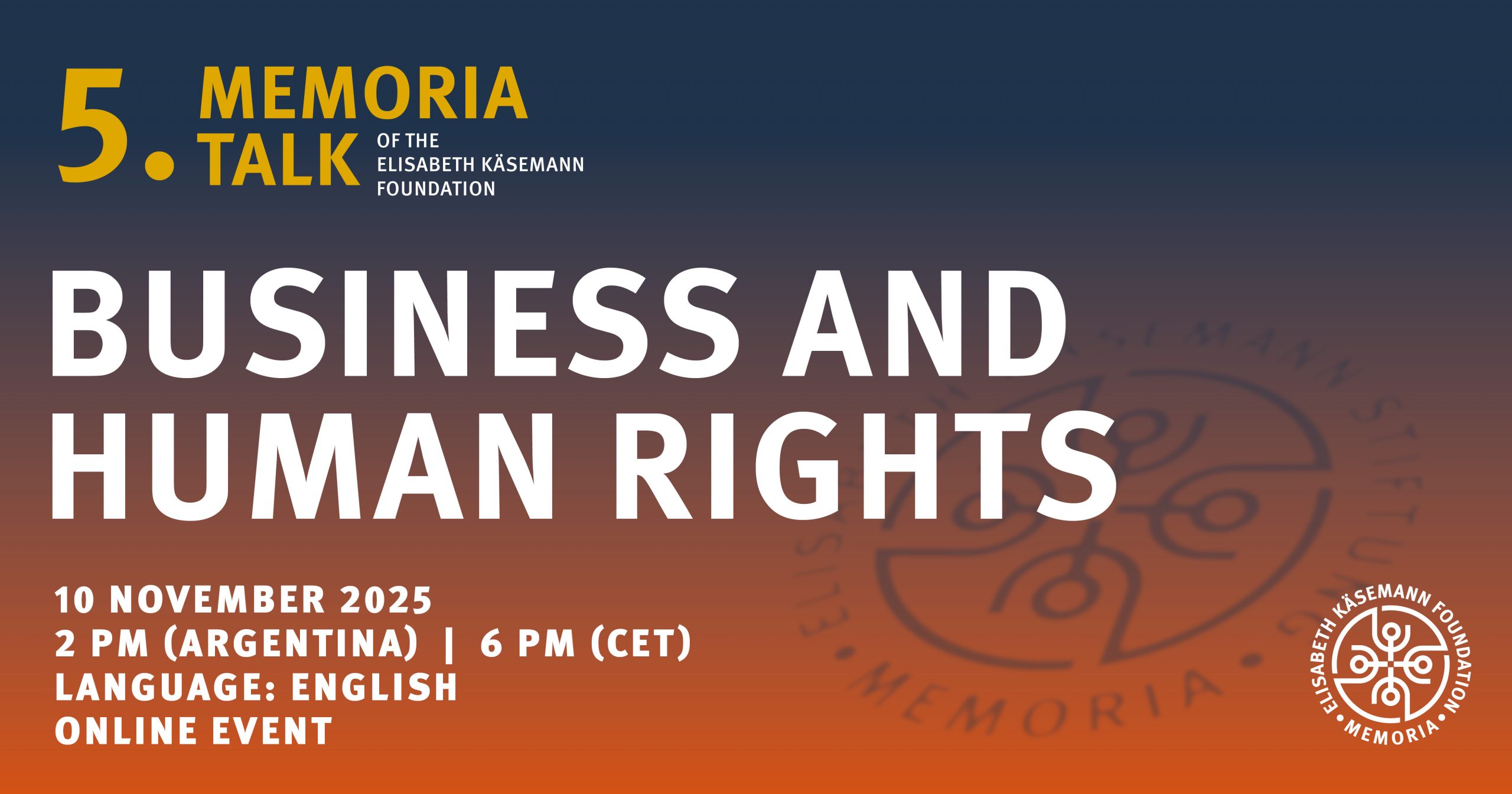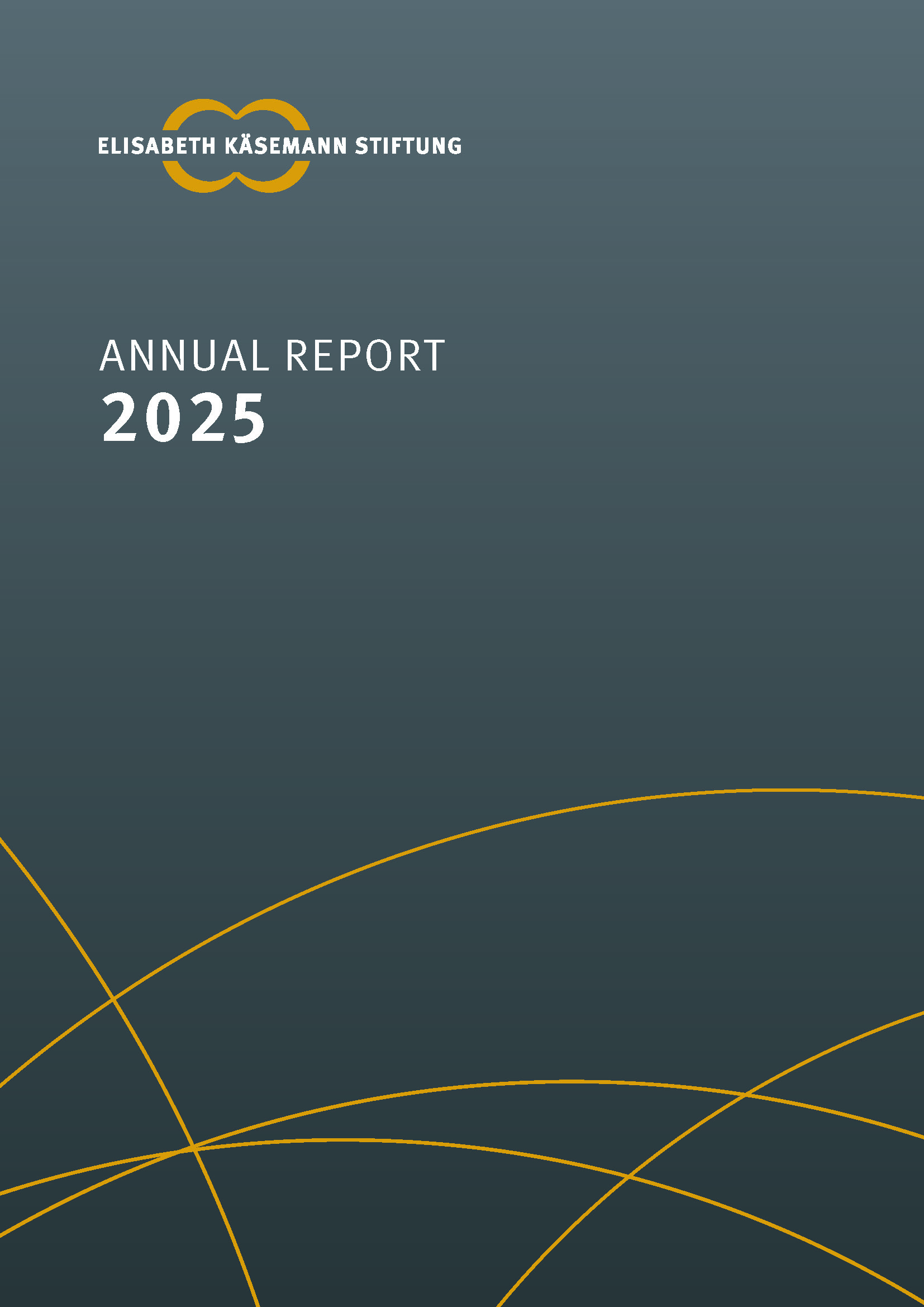NEWS



ACCOMPANYING VOLUME TO THE EXHIBITION
Now available: the exhibition catalog “Niños Robados / Gestohlene Kinder / Stolen Children”. The catalog in German and English complements our exhibition and is now available in bookstores as well as from the Metropol Verlag. More information on the publisher’s website.


EVENT ON THE OCCASION OF THE TENTH ANNIVERSARY OF THE ELISABETH KÄSEMANN FOUNDATION

Christoph Safferling, Theresia Bauer, Dorothee Weitbrecht, Christian Kuchler, Paula Santana with Federal Public Prosecutor General Jens Rommel (f.l.t.r.)

WELCOME ADDRESS AND KEYNOTE
PANEL DISCUSSION
EXCHANGE AND RECEPTION






























